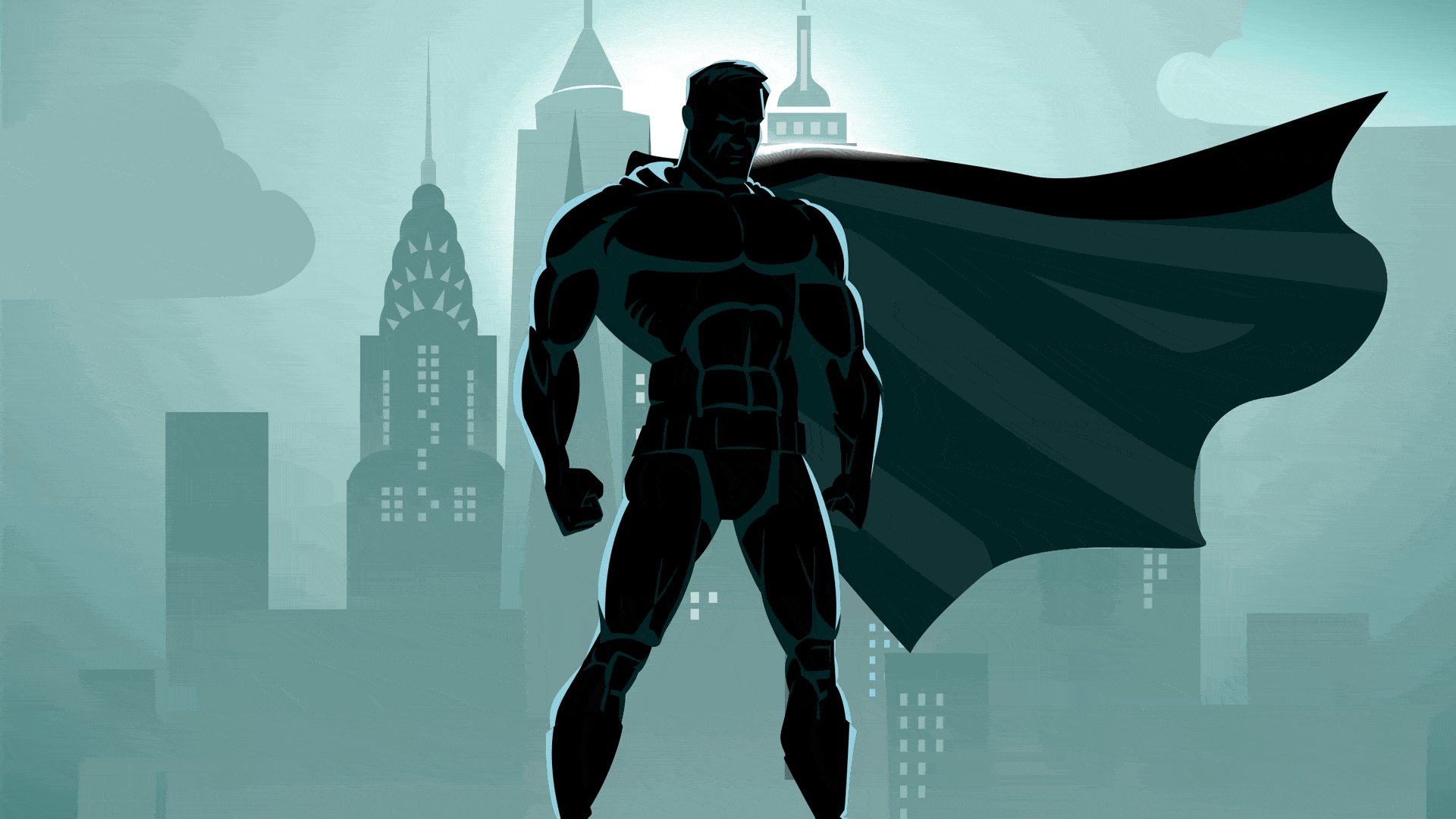Why Does It Matter That Jesus Rose Again? (2 Corinthians 4:7-18)

Big Idea: Easter gives us the ability to survive hardship, because death is not the end.
The most sacred symbol in Oklahoma City, Oklahoma, is a tree: a sprawling, shade-bearing, 80-year-old American Elm. Tourists drive from miles around to see her. People pose for pictures beneath her. Arborists carefully protect her. She adorns posters and letterhead. Other trees grow larger, fuller—even greener. But not one is equally cherished. The city treasures the tree not because of her appearance, but her endurance.
She endured the Oklahoma City bombing.
Timothy McVeigh parked his death-laden truck only yards from her. His malice killed 168 people, wounded 850, destroyed the Alfred P. Murrah Federal Building, and buried the tree in rubble. No one expected it to survive. No one, in fact, gave any thought to the dusty, branch-stripped tree.
But then she began to bud.
Sprouts pressed through damaged bark; green leaves pushed away gray soot. Life appeared in an acre of death. People noticed. The tree modeled the resilience the victims desired. So they gave the elm a name: the Survivor Tree.
What would it take for you to be as resilient as that? What would it take for you to be able to withstand the explosions and hardships of life, and to not just survive but live and thrive in the middle of difficulty?
This afternoon, for just a few minutes, I want to look at the passage of Scripture that we just read. And I want to do just three things, and I’ll be quicker than normal today.
- I want to show you that life is full of trials.
- I want to show you how you can hope in the middle of trials.
- I want to show you how you can get that hope.
I want to show you that life is full of trials.
Read verses 7 to 12 with me:
But we have this treasure in jars of clay, to show that the surpassing power belongs to God and not to us. We are afflicted in every way, but not crushed; perplexed, but not driven to despair; persecuted, but not forsaken; struck down, but not destroyed; always carrying in the body the death of Jesus, so that the life of Jesus may also be manifested in our bodies. For we who live are always being given over to death for Jesus’ sake, so that the life of Jesus also may be manifested in our mortal flesh. So death is at work in us, but life in you. (2 Corinthians 4:7-12)
Paul gives us a pretty powerful image in verse 7 of what life is like. He says we have a treasure — the good news of what Jesus has done, which we celebrate at Easter. But we have this treasure in clay jars. If you’re like me, you have nice storage containers in your house that you want to keep. You look after them, because they’re worth a bit of money. But then you have some plastic containers that came from the dollar store, or from take-out food. When someone comes over, and you want to send food home with them, you put it in that cheap plastic container and give it to them. When they ask if you want it back, you say, “No! Keep it!” It’s worth almost nothing. It’s disposable.
Paul says that we are like that. Back then, jars of clay were fragile, expendable, cheap, and unattractive. Now, Paul isn’t putting us down. But he’s making a pretty profound statement about life. We are pretty weak. We are confronted with weakness almost every day of our lives, even when we’re young. We reach the end of our capacity pretty quickly. It’s a universal reality.
But then Paul goes on and lists some of his hardships. He gives four paradoxes that form his reality, and that are going to help us as we look at them. These things shouldn’t belong together, but they do in Paul’s life, and they can in ours too. He is:
- afflicted in every way, but not crushed — or, as one person paraphrased it, squeezed but not squashed;
- perplexed, but not driven to despair — or, again, in the words of someone, bewildered but not befuddled;
- persecuted, but not forsaken;
- struck down, but not destroyed — knocked down but not knocked out.
Paul’s experience was that life is brutal. When you look at Paul’s life, and just take the first part of these paradoxes, you see that he was afflicted, perplexed, persecuted, and struck down. Life is hard. Later on, Paul writes:
...but as servants of God we commend ourselves in every way: by great endurance, in afflictions, hardships, calamities, beatings, imprisonments, riots, labors, sleepless nights, hunger; by purity, knowledge, patience, kindness, the Holy Spirit, genuine love; by truthful speech, and the power of God; with the weapons of righteousness for the right hand and for the left; through honor and dishonor, through slander and praise. We are treated as impostors, and yet are true; as unknown, and yet well known; as dying, and behold, we live; as punished, and yet not killed; as sorrowful, yet always rejoicing; as poor, yet making many rich; as having nothing, yet possessing everything. (2 Corinthians 6:4-10)
We have these images of what life should be like. We think that, ideally, it should be relatively problem-free. But Paul tells us that this is not what we can expect from life. In fact, it’s only in the past couple hundred years that we could even entertain such an idea. Most people in history, and even most people today, have no illusions about the difficulty of life. They’re not surprised by suffering. We are weak and fragile, and life is relentlessly hard. As Tim Keller writes:
Suffering is everywhere, unavoidable, and its scope often overwhelms…The loss of loved ones, debilitating and fatal illnesses, personal betrayals, financial reversals, and moral failures— all of these will eventually come upon you if you live out a normal life span. No one is immune. Therefore, no matter what precautions we take, no matter how well we have put together a good life, no matter how hard we have worked to be healthy, wealthy, comfortable with friends and family, and successful with our career— something will inevitably ruin it. No amount of money, power, and planning can prevent bereavement, dire illness, relationship betrayal, financial disaster, or a host of other troubles from entering your life. Human life is fatally fragile and subject to forces beyond our power to manage. Life is tragic. (Walking With God Through Pain and Suffering)
So that’s life. We’re weak, and life is hard.
I want to show you how you can hope in the middle of trials.
Here’s the irony. Some people are able to find hope, and thrive, even when they experience their weakness, and even when they experience extreme suffering. Paul is an example of this. He doesn’t deny suffering, but he finds hope even in the middle of suffering.
Where did Paul get that hope? Why was he not crushed, driven to despair, not forsaken, and not destroyed? There are at least four reasons in this passage — it has so much to offer those of us who are suffering — but today I want to focus on just one. Easter gives us the ability to survive hardship, because death is not the end.
Read verse 14:
…knowing that he who raised the Lord Jesus will raise us also with Jesus and bring us with you into his presence. (2 Corinthians 4:14)
Here is what Paul is saying. When God raised Jesus from the dead, it was a promise that he would also do this one day for those who believe and trust in Jesus.
Today, Christians are celebrating the event that took place on Easter Sunday almost two thousand years ago. God raised Jesus from the dead. It wasn’t just that Jesus came back to life. He was given a new kind of body. It was perfect. It wasn’t subject to weakness, aging, or death. It was like the human body he had, but even better. It was a completely new kind of human life, and the kind of life we all want.
Paul is saying that Jesus’ resurrection is more than an historical event, although it is that. It’s also a promise that God will do the same thing for us. All Christians everywhere will be gathered together in the presence of Jesus. We will appear blameless in his presence, united with Christ, with the multitude of others who have put their hope in Jesus Christ.
Because of this, Paul could put up with the difficulties he faced in life, because they’re only temporary. They’re just for now.
For this light momentary affliction is preparing for us an eternal weight of glory beyond all comparison, as we look not to the things that are seen but to the things that are unseen. For the things that are seen are transient, but the things that are unseen are eternal. (2 Corinthians 4:17-18)
Let’s get real about this. It’s been a hard week. Open the newspaper and you read about terrorist attacks, injustice, and premature death. Look around you, and you see people struggling through relational breakdown, mental and physical illnesses, and huge amounts of stress.
Paul doesn’t deny this reality. He doesn’t promise us an easy escape from the brutal realities of life. There’s no escaping this stuff. What he promises is that they’re temporary. One day we’ll be free from all of this stuff. And Jesus’ resurrection is proof that it’s not a pipe dream. It’s already a reality, and our turn is coming soon.
One of the best books on suffering out there is Tim Keller’s book Walking With God Through Pain and Suffering. He doesn’t provide any cheap answers to the problem of suffering, because there are none. But he says something profound. Christians are able to suffer with hope, because we know that suffering is not the final word.
The Christian doctrine of the resurrection and the renewal of the world— when all the biblical promises and implications are weighed and grasped— comes the closest to any real explanation we have. The resurrection of the body means that we do not merely receive a consolation for the life we have lost but a restoration of it. We not only get the bodies and lives we had but the bodies and lives we wished for but had never before received. We get a glorious, perfect, unimaginably rich life in a renewed material world.
Steve DeWitt says:
This world and its history are prelude and foretaste; all the sunrises and sunsets, symphonies and rock concerts, feasts and friendships are but whispers. They are a prologue to the grander story and an even better place. Only there, it will never end. J. I. Packer said it so well: “Hearts on earth say in the course of a joyful experience, ‘I don’t want this ever to end.’ But it invariably does. The hearts in heaven say, ‘I want this to go on forever.’ And it will. There can be no better news than this.”
In the end, there are only a few approaches possible when it comes to suffering:
- You can try to avoid suffering, but this never works.
- You can try to accept suffering, but this offers no hope. We know it’s not the way it’s supposed to be.
- You can embrace suffering and try to find good in suffering, but some kinds of suffering are too overwhelming for us. It’s hard to find any good in some of the kinds of suffering we experience.
- You can refuse to deny, accept, or embrace suffering. Instead, you can trust in Jesus and find that your suffering is engulfed in something greater — that it’s just the prelude to God setting everything right. Not only will he take away everything that’s bad, but he will restore everything to the world and life we’ve always wanted.
The last is the only approach that works. You can’t avoid, accept, or embrace suffering, but you can trust that God will undo suffering. Everything sad will come untrue. And Jesus’ resurrection is the just the beginning of what’s going to happen to all of us. Easter gives us the ability to survive hardship, because death is not the end.
I want to show you how you can get that hope.
How do we get this hope? Two ways.
First: trust in what Jesus has done for you. The gospel is the news that Jesus died for our sins, was buried, and rose again to give us new life. His resurrection was God’s “Amen!” to Christ’s “It is finished.” The gospel is good news of God’s massive grace to sinners. Come with empty hands and receive the gift that he freely offers to you.
Second: live in light of that hope today. Fix your eyes on this hope. It’s a discipline. When you’re suffering, cling to this hope. Bring the reality of your future into the present. Grab it and don’t let go.
Rick Warren, the pastor of Saddleback Church and the author of The Purpose Driven Life, together with his wife, Kay, went through a devastating loss when their twenty-seven-year-old son Matthew took his own life after battling depression and mental illness for years.
About a year after this tragedy, Rick said, “I’ve often been asked, ‘How have you made it? How have you kept going in your pain?’ And I’ve often replied, ‘The answer is Easter.’
“You see, the death and the burial and the resurrection of Jesus happened over three days. Friday was the day of suffering and pain and agony. Saturday was the day of doubt and confusion and misery. But Easter—that Sunday—was the day of hope and joy and victory.
“And here’s the fact of life: you will face these three days over and over and over in your lifetime. And when you do, you’ll find yourself asking—as I did—three fundamental questions. Number one, ‘What do I do in my days of pain?’ Two, ‘How do I get through my days of doubt and confusion?’ Three, ‘How do I get to the days of joy and victory?’
“The answer is Easter. The answer … is Easter.“
Easter gives us the ability to survive hardship, because death is not the end.





